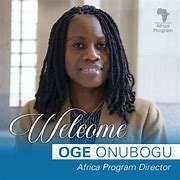Ngũgĩ wa Thiong’o, a literary giant from Kenya, has left an indelible mark on African literature and activism. Born in 1938 in the village of Limuru, his life unfolded against the backdrop of colonial rule and social upheaval, shaping his commitment to writing, teaching, and advocating for cultural identity.
His son, Mukoma wa Ngũgĩ, poignantly expressed the impact of his father’s passing by saying,
“It tears my heart to say that my father…passed away earlier today. I am me because of him in so many ways.”
This sentiment captures the profound influence Ngũgĩ had not only on his family but also on countless readers and scholars worldwide.
Ngũgĩ’s literary journey began with groundbreaking works like “Weep Not, Child
” (1964), marking the first English-language novel by an East African writer. Subsequent novels such as “
The River Between” (1965), “A Grain of Wheat” (1967), and “Petals of Blood
” (1977) delved deeper into themes of colonialism and its aftermath. His novel “
Devil on the Cross
” (1980), penned in Gikuyu while he was imprisoned for political reasons, underscored his commitment to indigenous languages as tools of liberation.
Beyond being a novelist, Ngũgĩ was a staunch advocate for African languages’ preservation and elevation. In a bold move symbolic of decolonization, he reclaimed his birth name James Ngugi and transitioned to writing exclusively in Gikuyu. His belief that language is intertwined with cultural autonomy resonated not only in his literary works but also in his academic endeavors.
During his tenure at the University of Nairobi and later at esteemed institutions like Yale University and UC Irvine, Ngũgĩ spearheaded efforts to reframe academic curricula around African literature—both oral traditions and written forms. Through essays, plays, children’s books, short stories like “
The Upright Revolution,” translated into over 100 languages—a testament to the universal appeal of his narratives—Ngũgĩ transcended borders with storytelling that celebrated African heritage unapologetically.
Ngũgĩ wa Thiong’o’s enduring legacy lies in his unwavering dedication to amplifying African voices through language advocacy and cultural pride. By challenging linguistic norms imposed by colonial legacies and embracing indigenous narratives with courage and conviction,
he inspired generations of writers to tell their stories authentically.









Leave feedback about this